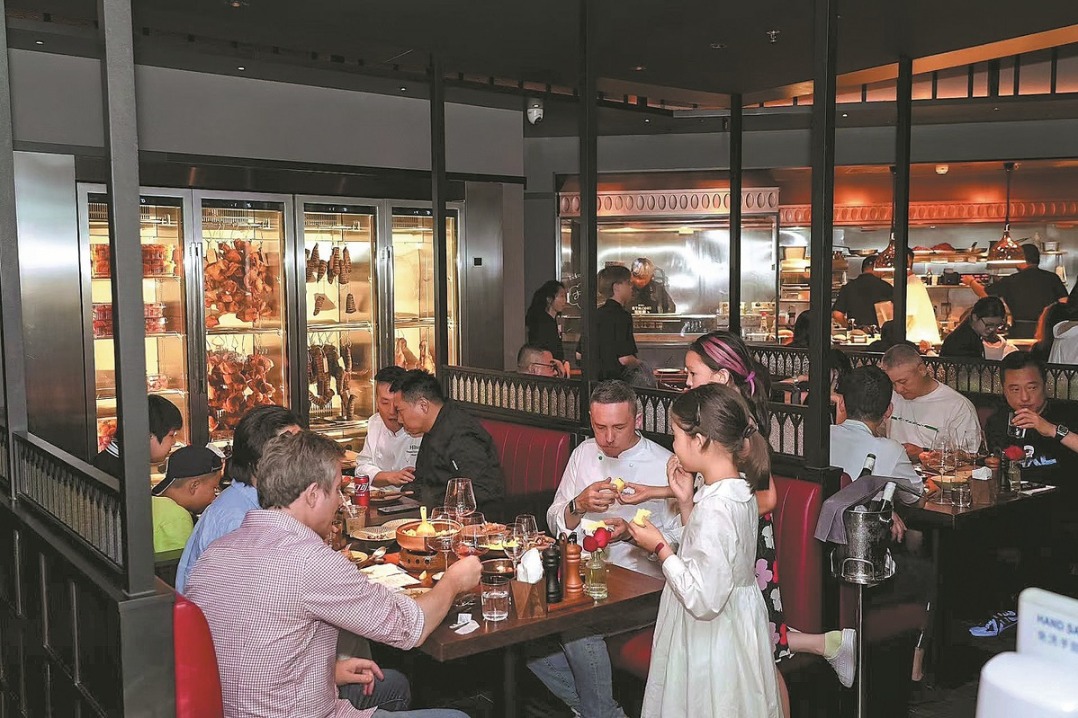Intimate, busy bistros bite into nation's restaurant industry
Innovative takes on regional dishes inspire new dining trend


Local inspiration
In Beijing, bistros spotlighting regional Chinese cuisines have become popular with diners.
Different foods from Yunnan and Fujian provinces and the country's northwest, and more recently the northeast, are redefining local dining with thoughtful wine pairings and clever food presentations.
At the forefront is White Tiger Village, a Yunnan-inspired bistro in Chaoyang district. Opened in 2021 by Nathan Zhang, a restaurateur with over a decade of experience in the industry, the bistro marries the bold flavors of Yunnan cuisine with natural wines. The concept quickly struck a chord, and the intimate venue has become one of the city's most sought-after dining spots.
"I'm not a meticulous planner," Zhang, 52, admitted. "When we started White Tiger Village, it just felt right — our food, our taste in drinks, our attention to ambience. It all came together naturally."
Zhang, who lived in Canada for over 10 years, brought an international sensibility to his bistro, supported by a team of like-minded staff. Many of them studied abroad and have contributed to the fusion take on Yunnan cuisine that has captivated diners.
The bistro, known for being pet-friendly, recently expanded its offerings beyond natural wine to include craft beers, aiming to attract an even broader clientele. Regulars visit multiple times a month, while out-of-town guests — business travelers from cities like Shanghai and Guangzhou, Guangdong — often make special trips to experience the restaurant.
Zhang also sees White Tiger Village as more than just a dining destination. He envisions it as a platform for creative exploration. The bistro has hosted film and art talks and even handed over its space to musicians for the day. Recently, Michelin-starred chef Talib Hudda took over the kitchen for a four-weekend pop-up brunch series.
"In China, we've always had our own version of bistros — think street-side barbecue spots where you can linger over skewers, edamame, and a bottle of beer," Zhang said.
"What we've created is simply a more refined space, with thoughtful dishes and a polished atmosphere. It's one more option, depending on the experience people are looking for."
Italian chef Fabio Falanga from Naples is also aiming for a relaxed atmosphere at his bistros. Arriving on Beijing's Western dining scene in 2009, the 39-year-old now oversees three venues in the city: Fresco, 024 Sea Strings, and Sediment Wine Bistro.
Sediment Wine Bistro opened two years on the cusp of Beijing's burgeoning bistro trend. "I wanted to create a place where I'd enjoy myself, a spot that isn't fine dining but still offers quality food and a relaxed atmosphere," Falanga said.
His goal was to create a bistro that sits between the extremes of high-end Western cuisine and everyday dining — a welcoming space where guests can visit often without feeling pressured.
The menu at Sediment reflects Falanga's roots in Naples, blending traditional dishes with innovative twists. To keep things fresh, he revamps the menu every two to three months.
























